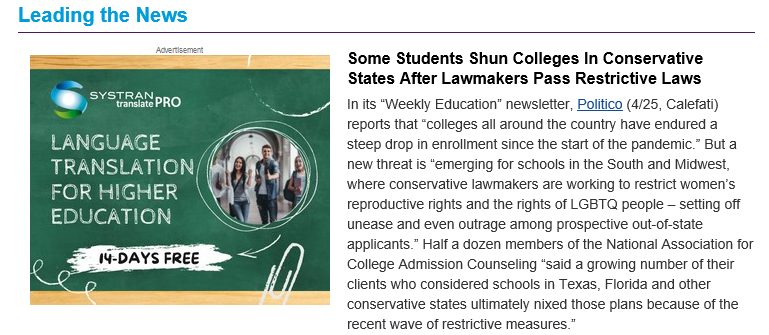
Thread: How we in EM think and work.
Yesterday we closed the class and stopped taking freshman applications for fall. That's unusual at OSU, as we've typically stayed open most or all of the summer.
So, the summer is relaxation time, right?
Yesterday we closed the class and stopped taking freshman applications for fall. That's unusual at OSU, as we've typically stayed open most or all of the summer.
So, the summer is relaxation time, right?
No, for lots of reasons. First, you made a decision. Was it the right one? Or do a lot more students have double or triple deposits than usual? What's melt going to be like? Is our post-COVID admission world going to behave differently than pre-COVID?
Are we even post-COVID?
Are we even post-COVID?
After watching deposits for four months, you now start to look at Orientation registrations, and housing contracts. And email click rates. You know some percentage of students will sign up at the last minute for the last event, but what percentage will it be this year?
And, of course, transfers. We are a long way from done with transfers, and in case you hadn't noticed, enrollment at community colleges continues to fall.
We're watching pipelines for that enrollment segment continue to shrink.
We're watching pipelines for that enrollment segment continue to shrink.
By the way, while you were all sleeping, we started recruiting for the classes of 2023 and 2024.
Last January.
Last January.
And we're in a good position. There have been lots of years when I had to worry about all those other things while I still worried about next fall's freshman class.
Many colleagues are in that situation right now.
Many colleagues are in that situation right now.
One of the greatest injustices in higher education is that the freshman class is such a defining element of an institution's identity.
We think of Chicago and Princeton and Michigan as thriving research universities.
The public sees their rejection rate and SAT scores.
We think of Chicago and Princeton and Michigan as thriving research universities.
The public sees their rejection rate and SAT scores.
No one on the elevator ever asks me how retention looks, or how much aid we've spent to make this class. The small talk of enrollment is always about the freshman class, even at Oregon's largest four-year university with the most research dollars.
And, as my mother used to say, "if everyone went into a room and threw their troubles onto a big pile, when it came time to redistribute them, you'd probably take your own back."
I'm one of the lucky ones in that regard. There are problems, and then there are problems.
I'm one of the lucky ones in that regard. There are problems, and then there are problems.
So, no, we don't take the summer off. And no, we don't stop worrying.
It's the way our business, and probably, our minds, work.
It's the way our business, and probably, our minds, work.
So when you get on the elevator today with your EM professional, ask them about anything, except how enrollment is looking (note: this does not apply to the provost or president).
Oh, and #EMTalk
• • •
Missing some Tweet in this thread? You can try to
force a refresh







